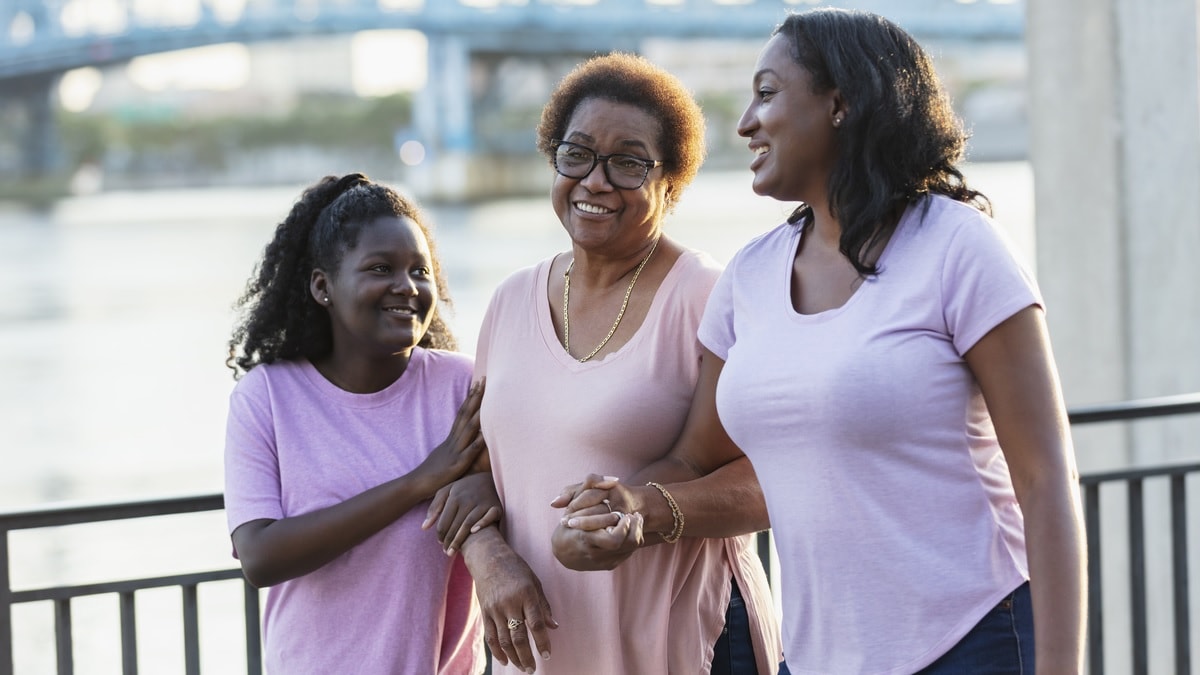Key points
- Some people have a higher risk for a breast cancer (BRCA) gene mutation than others.
- Certain family history patterns indicate a higher risk for a BRCA gene mutation.

Overview
Your personal and family cancer history may suggest that you have a higher risk for a BRCA gene mutation.
Family history
You may be at increased risk for a BRCA gene mutation if your family history includes:
- Several relatives with breast cancer.
- Any relatives with ovarian cancer.
- Relatives who got breast cancer before age 50.
- A relative with cancer in both breasts.
- A relative who had both breast and ovarian cancers.
- A male relative with breast cancer.
- Ashkenazi Jewish ancestry (Central or Eastern European) and any relative with breast or ovarian cancer.
- A relative with a known BRCA gene mutation.
Learn how to collect your family history of cancer.
Personal history
You may have a higher risk for a mutation if you have had:
- Breast cancer before age 50.
- Triple-negative breast cancer.
- Male breast cancer.
- Breast cancer more than once.
- Ovarian cancer, fallopian tube cancer, or primary peritoneal (lining of the abdomen) cancer at any age.
- Both breast and ovarian cancers.
- Breast cancer or ovarian cancer at any age, and you are of Ashkenazi Jewish ancestry (Central or Eastern European).
- Breast cancer, and you have a family member with breast or ovarian cancer.
Breaking Down BRCA
This video explains the importance of BRCA genes in fighting cancer. Changes in these genes can raise a person’s risk for breast, ovarian, and other cancers. Learning about your family history of cancer can help you and your health care provider understand your cancer risk.
Jewish people and BRCA gene mutations
If you are of Ashkenazi Jewish descent, you have a higher risk for a BRCA gene mutation. If either of the following statements are true, you may benefit from genetic counseling:
- Any first-degree relative (parent, child, or sibling) had breast or ovarian cancer.
- Two second-degree relatives (grandparent, aunt or uncle, or niece or nephew) on the same side of the family had breast or ovarian cancer. These can be relatives on your mother's or father's side of the family.
Cara: Making Decisions with a Genetic Counselor
Cara's father encouraged her to get genetic counseling because of her family history of cancer and Ashkenazi Jewish heritage. In this video, Cara explains how a genetic counselor helped her understand her cancer risk.
